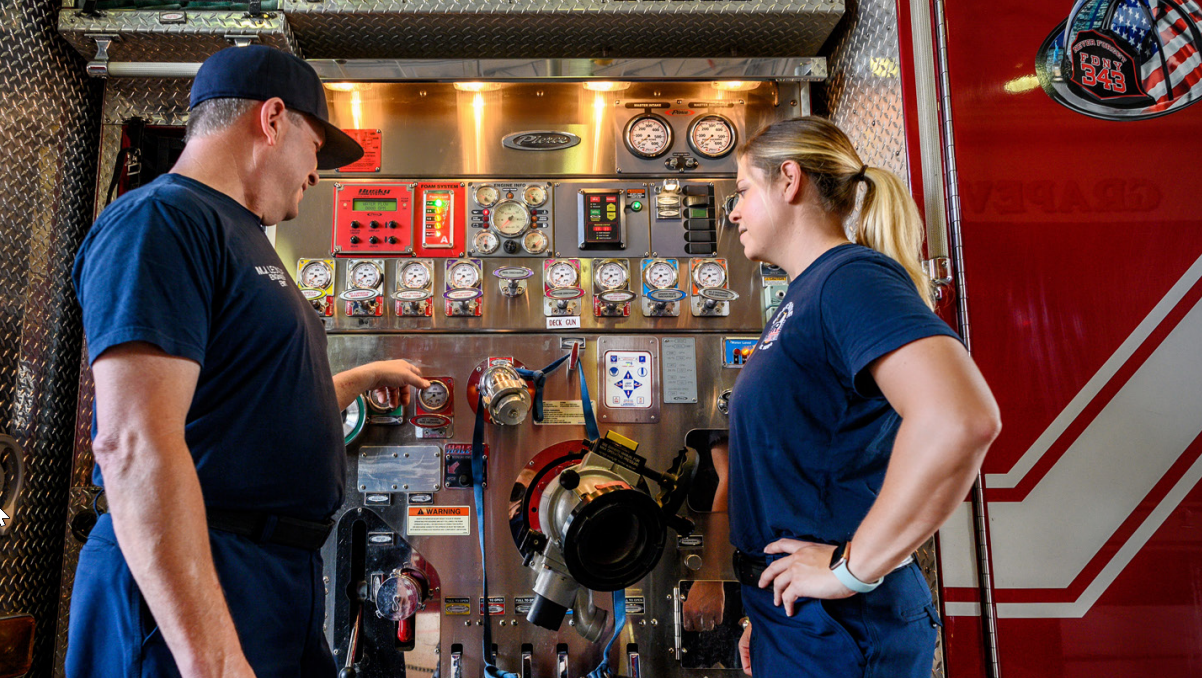FORT WORTH, Texas — Tarrant County College is fueling economic growth in one of the nation’s fastest growing regions, generating $2.3 billion in added income for Tarrant County while equipping students to meet rising workforce demands.
A recent independent study by the nationally recognized labor market analysis firm Lightcast confirms the College’s value extending far beyond a traditional two-year education. TCC activity supports one in every 55 jobs in Tarrant County.
The report draws from TCC financial figures and from the U.S. Bureau of Labor Statistics and U.S. Census Bureau for fiscal year 2024.
Chancellor Elva LeBlanc: “We’re so much more than a college — we are a catalyst for opportunity. This billion-dollar impact shows how accessible, exceptional education can transform lives, strengthen communities and shape a competitive workforce.”
The Lightcast study tells a dynamic story.
With their TCC education and training, Trailblazers make higher salaries and boost the productivity of the businesses and industries that employ them. TCC alumni generated $1.8 billion in added income to the county’s economy in FY 24, the equivalent to supporting 20,797 jobs or hosting five Super Bowls.
“Perhaps more impressive than the numbers are the lives changed,” Dr. LeBlanc said. “Students come to Tarrant County College to earn more and find purpose. Every investment, every effort, helps Trailblazers rise. And when our students rise, they lift us all.”
TCC associate degree graduates in 2024 on average will earn an undiscounted $394,800 more than high school graduates over their working lives in Texas ($9,400 more annually per graduate). Students who transfer to a four-year institution and receive a bachelor’s degree will make $30,800 more than a high school graduate each year.
Put simply, TCC associate degree graduates collect $7.20 in higher future earnings for every dollar they allocate to their education, the study says — an average 22.5% annual return on their investment. That’s more than double the U.S. stock market’s 30-year average of 10.1%.
Taxpayers, in return, benefit from $505.3 million in added tax revenue stemming from students’ higher lifetime earnings and increased business output. The reduced demand for government-funded services, due to lifestyles changes associated with a higher education, adds another $50.3 million in savings.
For every dollar of public money invested in TCC in FY 24, taxpayers receive $1.30, or 2.2 percent, back over time.
With more than 1,200-plus business partnerships, some 70 university connections, and 240 degree and certificate options — everything from aviation to cybersecurity to public safety to healthcare — possibilities at Tarrant County College are limitless. And the return is undeniable.
Of TCC’s $2.3 billion Tarrant County impact, day-to-day operations spending added $288.8 million in FY 24 income, the Lightcast study indicates. Student spending provided $78.1 million, and construction spending accounted for another $73.4 million.
A redevelopment of TCC Northwest and upgrades to TCC Southeast continue, thanks to a bond program voters approved in 2019 to construct, improve, renovate and equip facilities on all six Tarrant County College campuses. Up next are a science facility at Northeast and an automotive building at South.
“Lightcast findings prove what we’ve known all along,” Chancellor LeBlanc said. “TCC prepares students not just for jobs but for life. North Texas employers find talent, and our communities find lasting connection.”
Discover more at https://tccd.college/impact.
Celebrating 60 years of excellence and impact in 2025, Tarrant County College is one of the nation’s largest higher education institutions and boasts the second lowest tuition of Texas’ Top 10 community colleges. A comprehensive community college with six campuses in Tarrant County, TCC offers a range of opportunities for learners of all ages and backgrounds, including Associate of Arts and Associate of Applied Science degrees; workforce and economic development programs; technical and skilled trades programs; and customized training.

